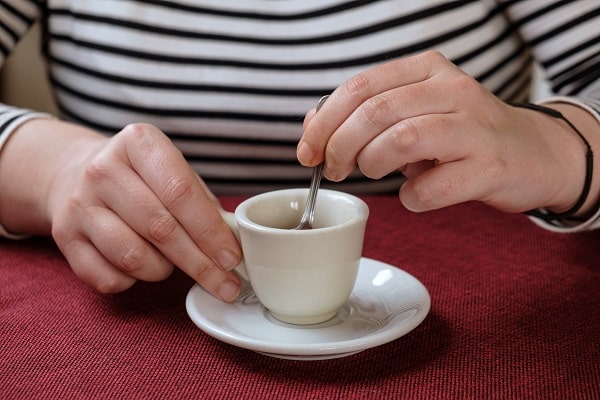Sugar, often called the “white poison”, has become a ubiquitous component of modern diets. From breakfast cereals to beverages, its presence is almost inescapable. While a small amount is harmless, excessive consumption has been linked to a plethora of health issues, including obesity, type 2 diabetes, and heart diseases. This article aims to shed light on simple strategies to reduce sugar intake, ensuring a healthier lifestyle for its readers.
Contents
Understanding Hidden Sugars

Hidden sugars, as the name suggests, are those sugars that aren’t immediately obvious. They’re not the spoonful one might add to their coffee, but rather the sugars that are sneakily included in everyday products. Processed foods, certain beverages, and even seemingly healthy snacks can be culprits. For instance, a can of soda or a store-bought smoothie can contain multiple teaspoons of sugar.
Reading food labels becomes an essential skill in identifying these hidden sugars. Ingredients such as corn syrup, fructose, and glucose are all aliases that sugar hides behind. By becoming a vigilant label reader, one can start to discern which products are laden with unnecessary sugars and which are not.
Opt For Natural Sweeteners

Refined sugars, which undergo extensive processing, strip away beneficial nutrients and minerals. On the other hand, natural sweeteners, while still a form of sugar, often come with added health benefits. Honey, for instance, not only sweetens but also has anti-inflammatory properties.
Maple syrup, stevia, and agave nectar are other alternatives. When used in moderation, these natural sweeteners can be a healthier choice. However, it’s essential to note that just because they’re natural doesn’t mean they can be consumed in large quantities. The key is moderation and understanding the nutritional content of each.
Rethink Your Drinks

Beverages are one of the primary sources of hidden sugars. A single can of soda can contain up to 10 teaspoons of sugar, far exceeding the daily recommended intake. Fruit juices, though often perceived as healthy, can be just as sugar-laden as sodas when they’re not 100% juice.
The best alternative is plain water, which hydrates without any added sugars or calories. For those who find water too bland, herbal teas or water infused with fresh fruits can be a flavorful yet healthy choice. By making a conscious decision to reduce sugary drinks, one can significantly decrease their daily sugar intake.
Modify Your Baking Habits

Traditional baking recipes often call for large amounts of sugar. However, with a bit of creativity and experimentation, one can reduce the sugar content without compromising on taste. For instance, applesauce or mashed bananas can serve as natural sweeteners in muffins and cakes.
Furthermore, when adjusting recipes, it’s essential to taste as you go. Sometimes, reducing the sugar by even a quarter can still result in a delicious product. Over time, one’s palate can adjust, and what once seemed just right might now seem overly sweet.
Be Mindful Of Sauces And Condiments

It might come as a surprise to many, but sauces and condiments can be significant sources of hidden sugars. A tablespoon of ketchup, for instance, can contain up to a teaspoon of sugar. Salad dressings, BBQ sauces, and even some mustard can be culprits.
The solution? Opt for homemade versions where one can control the ingredients or seek out low-sugar or no-sugar-added alternatives in stores. By being mindful of these seemingly insignificant additions to meals, one can make healthier choices.
Prioritize Whole Foods

Whole foods, those that are unprocessed or minimally processed, naturally contain less sugar than their processed counterparts. A piece of fruit, for instance, not only provides natural sugars but also essential fibers and nutrients.
Incorporating more whole foods into one’s diet means fewer opportunities for hidden sugars to sneak in. Simple strategies like meal planning or shopping at local farmer’s markets can make this transition smoother and more enjoyable.
Educate Yourself

Knowledge is power. By understanding the effects of sugar on the body and where it lurks, one can make informed decisions. There are numerous resources available, from books to documentaries, that delve into the sugar industry and its impact on health.
Equipped with this knowledge, one can navigate grocery store aisles with confidence, making choices that align with a healthier lifestyle. It’s not about fear but rather empowerment through understanding.
Set Realistic Goals

Cutting out sugar entirely can be a daunting task, and for many, it’s not realistic. Instead, setting achievable goals can lead to long-term success. Perhaps it’s reducing sugar in morning coffee or opting for unsweetened snacks.
It’s essential to celebrate small victories along the way. Every conscious choice to reduce sugar intake is a step towards better health. And remember, occasional indulgences are okay; it’s the overall pattern of eating that matters most.
The Bottom Line
Reducing sugar intake is a journey, not a destination. It’s about making conscious choices every day, armed with knowledge and a desire for better health. The benefits of consuming less sugar are manifold, from increased energy levels to a reduced risk of chronic diseases. As with any lifestyle change, the first step is always the hardest, but with determination and the right resources, a low-sugar life is entirely attainable.


